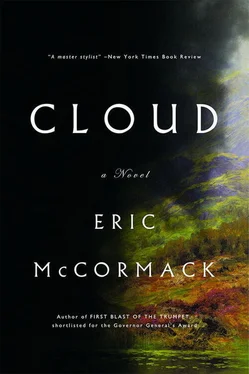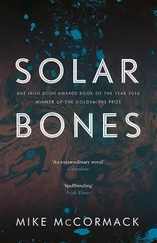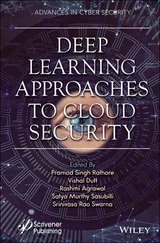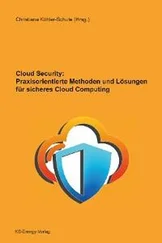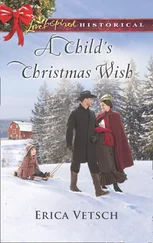With the help of a Baedeker lent to me by Mrs. Kirk, I explored the town’s surroundings. There really was only the one main paved road, which was fairly flat while it ran through Duncairn but then descended through many miles of moorland, east and west, to the two opposing coastlines. Another much narrower road ran south past the railway station and stopped at the entrance of the coal mine, its elevator looming up like a grimy Ferris wheel.
Along this road, at regular intervals each day, I’d see groups of men coming from or going to the mine. They all seemed to live in those rows of brick houses I’d passed when I first arrived. The miners on their way to work and those returning from it were indistinguishable in the matter of clothing: they all wore the same dark jackets and trousers, with worn-out boots. But the men on their way to the mine had clean, pink faces, and they talked and joked together. The men returning were hunched and quiet, their faces black with coal dust.
I TOOK MY EXPLORATORY walks into the rolling hills in no matter what weather. In Duncairn, even though it was summer, the sun rarely shone and rain fell a good part of most days. The slopes of the hills were relatively gentle, but the Baedeker noted that eons ago they’d been jagged mountain ranges whose edges time had since smoothed out. They were covered in heather and bracken and little blue and yellow flowers. There were various grey fungi that looked so revolting I kept well clear of them, though the book said they weren’t at all dangerous.
Other real dangers lurked in these hills, however. Quite innocent-looking areas of bracken were in fact bogs known to have sucked down the unwary, and to have done so for a long time. The Baedeker recorded that the body of a man wearing strange, tattered clothing had been burped up in recent years by a bog just south of Duncairn. Scientists estimated he’d been swallowed by the bog and stayed in there for three or even four thousand years. I myself saw a few carcasses of sheep unlucky enough to have wandered into the wrong areas. Their coats were slick and black.
On my walks I was also startled by creatures that never visited the Tollgate — deer of every size, and hares. There were also squadrons of small black birds whose wings were streaked with white feathers. They would fly at my head, squawking angrily, with greedy eyes I didn’t much like the look of.
A SECTION OF THE Baedeker that dealt with the Roman attempt to colonize this part of the world drew attention to the barely visible remains of an old road that ran from the southeast edge of Duncairn into the hills. Archaeologists had found pot shards, denarii, and a variety of mallets and nails near it. They’d also dug up several ancient skulls with nail holes bored into them. Whether this was a horrific form of execution inflicted by the Romans on the original inhabitants or vice versa, the experts hadn’t as yet established.
I only managed to find the outline of that old road because of the occasional moss-covered cobblestones that protruded from it. I followed its traces for about two miles to the foot of the Cairn Table — the highest hill in the area. The road came to a dead stop at the remains of a ten-foot-high wall made of stones and earth mixed. The wall itself stretched intermittently for many miles, so I came across parts of it on other walks.
As for the purpose of the road and the wall, my Baedeker noted only that hostile tribes hadn’t existed in sufficient numbers in the area to warrant such elaborate engineering. The book speculated vaguely that the Romans might have been afraid of something else and that the wall had been built for protection against it.
Certainly, on an overcast day up in these hills, a citified hiker with an imagination couldn’t help glancing nervously over his shoulder sometimes. It was easy to believe that up here there might be something so primitive and unpleasant that neither ramparts nor centuries could keep it at bay.
On my fourth morning at Duncairn I found a scribbled note that had been slipped under my door at the bottom of the stairs.
Please come and see me at the school any time after nine this morning.
Sam Mackay.
Accordingly, after a roll and coffee at Mackenzie’s, I made my way to the school. The inside was gloomy and smelled stale. The caretaker directed me to an office on the other side of an assembly area, and there I went, my shoes echoing loudly on the plank flooring. I knocked on the door.
A high-pitched voice called to me to come in.
The man who got up from behind the desk to greet me was one of the widest human beings I’d ever seen. Not fat, but wide. He almost seemed the width of two men, with everything— head, arms, legs — in proportion. Each of his big brown shoes could have accommodated my two feet.
“I’m Sam Mackay,” he said. “Welcome to Duncairn.” That reedy voice was a surprise coming from such a big man.
He reached out his huge hand and shook mine warmly. He looked about forty, with receding red hair. His face was freckled, his green eyes far apart, his smile wide and friendly.
“Mrs. Kirk told me you’d moved in,” he said when we were seated. “I’m very glad of this chance to talk to you. I was afraid I might miss you, since I’m back in Duncairn for only a couple of days. Then I’ll be on the road till just before the term starts— I’m with a travelling committee of the Board of Education.” He made a face as though he wasn’t too thrilled about that prospect. “It was a real stroke of luck for me to run across Jacob last time I was in the city. As I told him then, it’s so hard to get competent people to come and work in these country schools, especially on a temporary basis. So I was delighted when he recommended you and you agreed to come here.” I wasn’t so sure the word “competent” would apply to me. “Oh, I know you’ve never done any teaching, but don’t worry about it,” he said. “You won’t have to perform in front of a class. You’ll just be giving extra writing instruction to pupils with problems. It’s mainly done on an individual basis.”
I was relieved to hear that.
“I hadn’t seen Jacob in years,” he said. “From his letter, I could tell he thinks very highly of you. He and I were in a music history class together when we were at university. Of course, he was a real musician — a wonderful violinist — and I was just picking up an optional course. He was quite a ladies’ man in those days. So now he’s with the symphony — and has a wife, as well? Isn’t it funny, I never thought of him as the type who’d settle down to the boring, domestic life. His wife must be quite exceptional, I suppose?”
I assured him that Deirdre was indeed quite something — and was especially fond of cats.
He now began asking me questions about myself. I told him everything he wanted to know, even about the shocking deaths of my parents.
He listened to that with great sympathy. Some years before, apparently, his own father and his only brother, both coal miners, had been killed in a cave-in at the Duncairn mine. His mother had died, heartbroken, just a year after their deaths. He himself still lived in the family rowhouse, which was full of reminders of them.
“You won’t meet too many people in Duncairn who haven’t had a family member killed in the mines,” he said. “That’s the story in a nutshell of these towns in the Uplands. I’d have been sent down the mines myself, but I was just a bit too big.” He spread his arms, indicating his bulk. “So, I stayed at the books and here I am, principal of the school where I used to be a pupil.”
After that, we talked a while longer about what my teaching responsibilities would entail. He handed me a copy of an elementary grammar and composition book my pupils would be using.
Читать дальше
